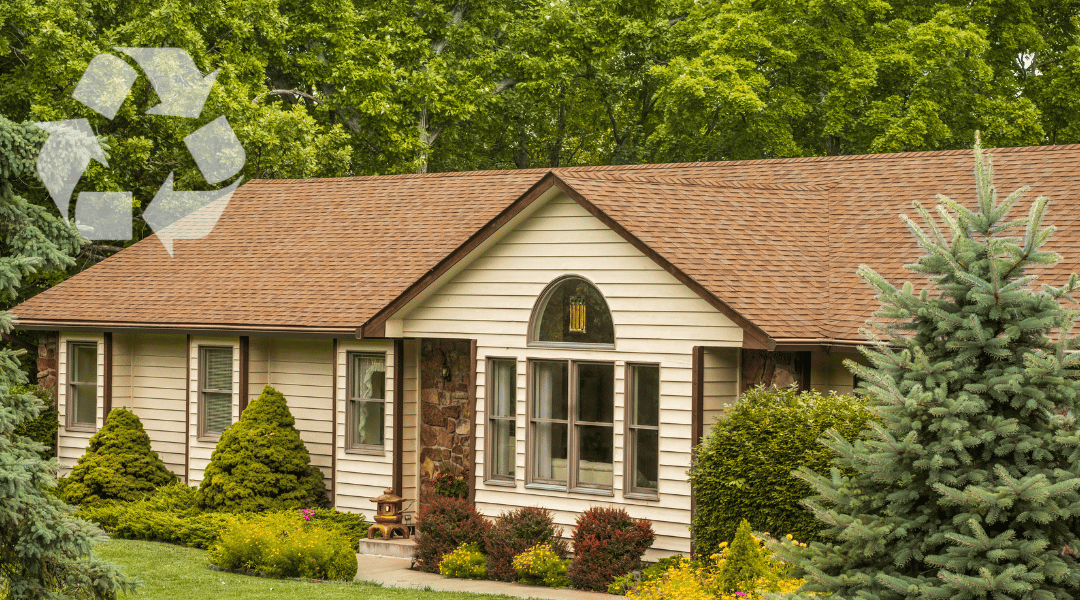Is Vinyl Siding Energy Efficient and Sustainable?
In today’s world, homeowners are increasingly concerned about both their environmental footprint and rising energy bills. As a result, they are seeking cost-effective and eco-friendly solutions to improve the energy efficiency of their homes. One significant aspect of home improvement in this context is the choice of siding material. Vinyl siding, often seen as a popular choice for its affordability and durability, is frequently questioned regarding its energy efficiency and sustainability. In this article, we’ll explore whether vinyl siding is a wise choice for homeowners who prioritize energy efficiency and sustainability and how it compares to alternative siding materials.
Understanding Vinyl Siding
Vinyl siding is a synthetic, plastic-based exterior cladding material known for its low cost, versatility, and minimal maintenance requirements. Its popularity stems from its ability to mimic the appearance of wood, brick, or stone without the associated upkeep costs. When it comes to energy efficiency and sustainability, here’s what homeowners need to consider:
- Insulation Options: Vinyl siding can be paired with various insulation types, such as foam-backed panels. This added insulation can significantly enhance the energy efficiency of a home by improving its thermal resistance (R-value). Proper insulation reduces heat transfer, keeping homes cooler in the summer and warmer in the winter.
- Energy Savings: The energy savings achieved with vinyl siding depend largely on the insulation used and the climate of the region. In general, vinyl siding with added insulation can lead to reduced energy consumption for heating and cooling, resulting in lower utility bills.
- Durability: Vinyl siding is designed to last for decades without significant maintenance. This durability contributes to its sustainability by reducing the need for frequent replacements, which can be resource-intensive.
- Recyclability: Vinyl siding can be recycled, although it’s important to note that recycling rates can vary by region. Recycling vinyl helps divert material from landfills and reduce the environmental impact.
Comparing Vinyl Siding to Alternatives
To determine whether vinyl siding is the best choice for energy efficiency and sustainability, homeowners should consider alternatives:
- Fiber Cement: Fiber cement siding is known for its durability and low maintenance. It also has good insulation properties, but it can be heavier and more labor-intensive to install compared to vinyl siding.
- Wood Siding: Wood siding provides a natural and timeless look, but it typically requires more maintenance, which can impact sustainability. It has moderate insulation properties and may need regular painting or staining.
- Metal Siding: Metal siding, such as steel or aluminum, is highly durable and recyclable. However, it may not offer as much insulation as vinyl siding, so additional insulation may be necessary for energy efficiency.
- Brick or Stone Veneer: These materials offer excellent durability and insulation but can be significantly more expensive than vinyl siding.
Making an Informed Decision
Ultimately, the choice between vinyl siding and its alternatives should be based on individual preferences, budget, and specific environmental goals. Homeowners concerned about energy efficiency should prioritize proper insulation and seek out siding options that can be paired with high-quality insulation materials.
When deciding on a siding material, it’s advisable for homeowners to:
- Consult Professionals: Seek advice from reputable siding contractors who can assess your home’s specific needs and recommend the most suitable siding material and insulation options.
- Consider Long-Term Costs: While vinyl siding may be more affordable upfront, factoring in long-term maintenance and energy savings is crucial when evaluating its overall cost-effectiveness.
- Recycling and Disposal: If sustainability is a top priority, research the recycling options for the chosen siding material and consider how it will be disposed of at the end of its lifespan.
The last word
Vinyl siding can be an energy-efficient and sustainable choice for homeowners, especially when combined with quality insulation materials. However, it’s essential to weigh the pros and cons against alternatives, considering factors such as insulation capabilities, durability, and overall environmental impact. By making an informed decision, homeowners can improve their home’s energy efficiency, reduce their environmental footprint, and enjoy lasting benefits.
Whether you choose vinyl siding or another option, Superior Siding and Window Systems is your partner to installing the right application for your home.

